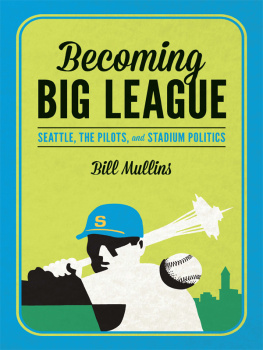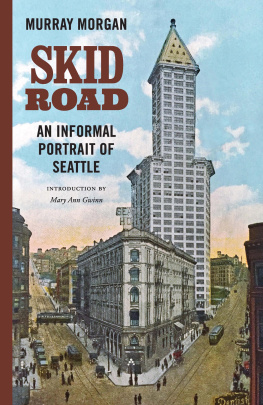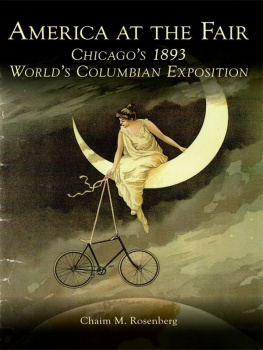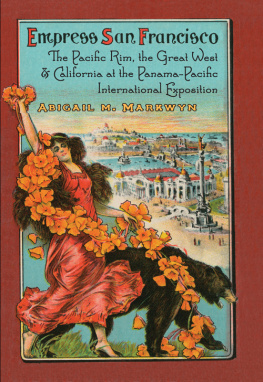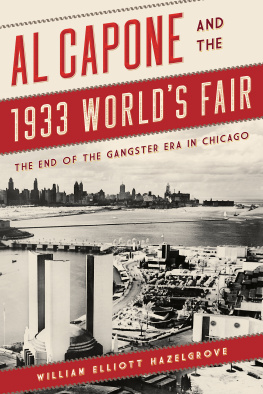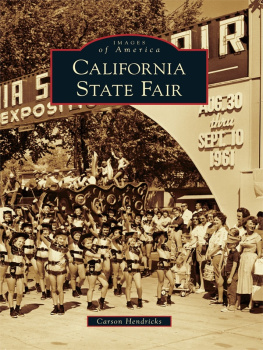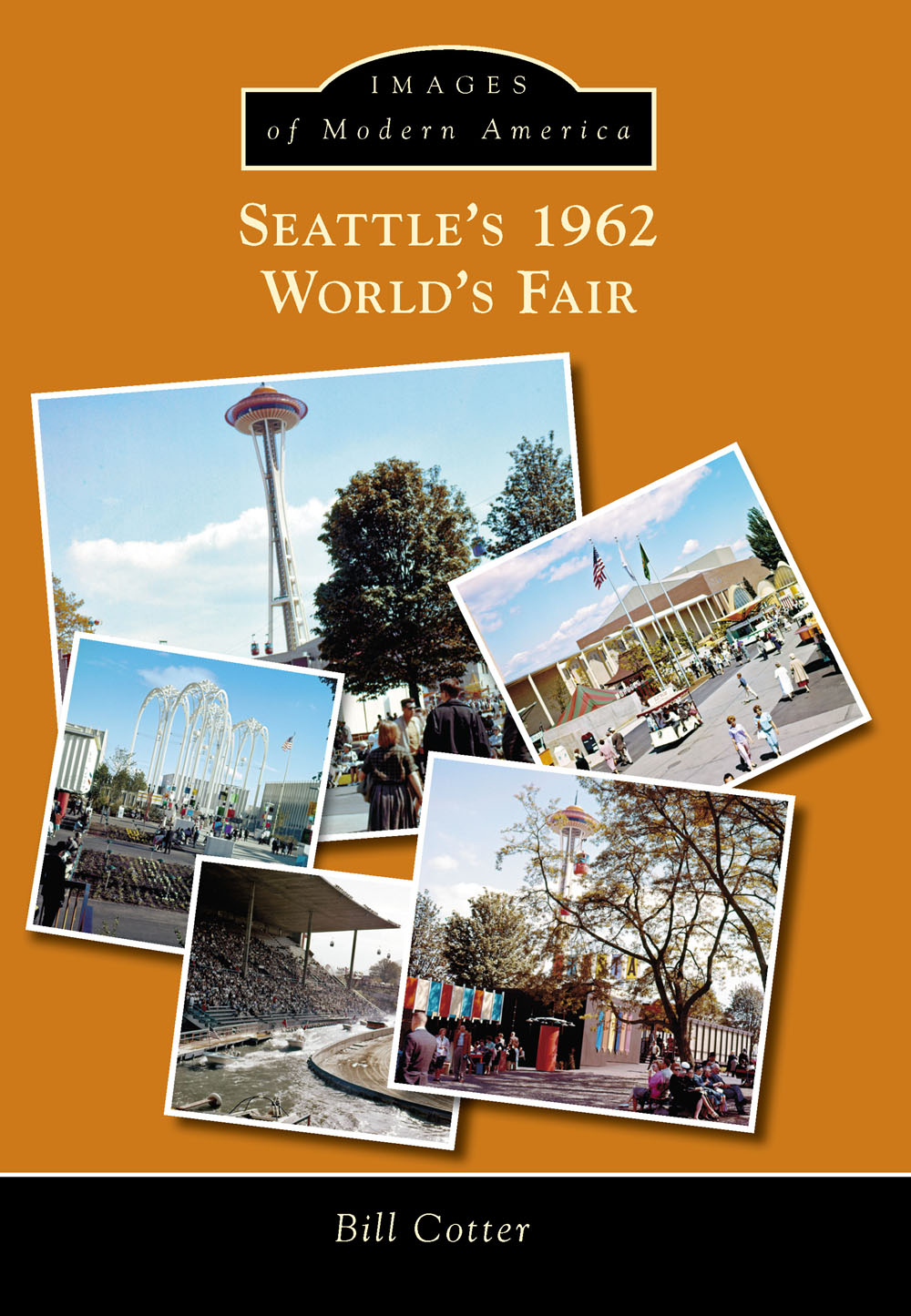
IMAGES
of Modern America
SEATTLES 1962
WORLDS FAIR
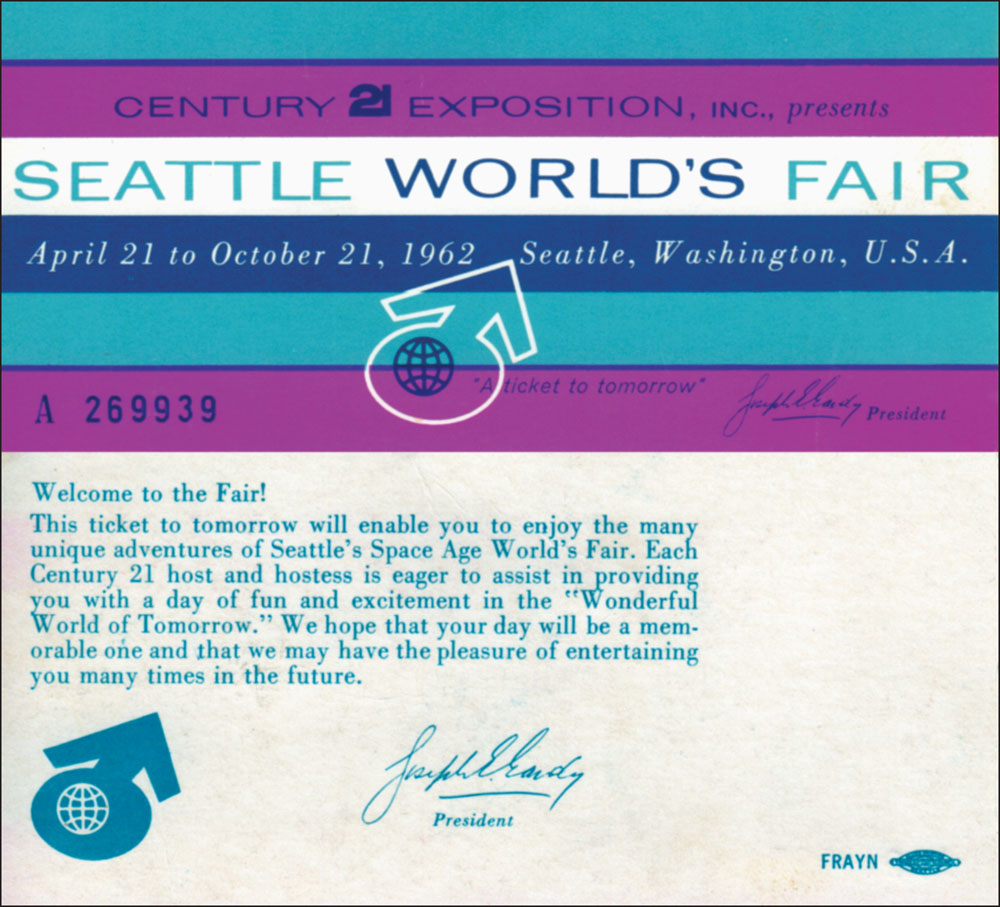
A ticket to the 1962 Worlds Fair was a passport to many worlds. Visitors could explore exhibits on science, new products, and international cultures, as well as a wide variety of shows and the latest in carnival rides.
ON THE FRONT COVER: Clockwise from top left: Space Needle, symbol of the fair (authors collection), Electricab taxi passing the Fine Arts Building (authors collection), Fiesta Restaurant (authors collection), Its the Water show (authors collection), and arches of the US Science Exhibit (authors collection).
ON THE BACK COVER: From left to right: General view of the fair site (authors collection), the famous Bubbleator elevator (authors collection), and Electricab at the monorail terminal (authors collection).
IMAGES
of Modern America
SEATTLES 1962
WORLDS FAIR
Bill Cotter

Copyright 2015 by Bill Cotter
ISBN 978-1-4671-1512-4
Ebook ISBN 9781439654262
Published by Arcadia Publishing
Charleston, South Carolina
Library of Congress Control Number: 2015948004
For all general information, please contact Arcadia Publishing:
Telephone 843-853-2070
Fax 843-853-0044
E-mail
For customer service and orders:
Toll-Free 1-888-313-2665
Visit us on the Internet at www.arcadiapublishing.com
To Carol: thanks for letting me fill the house with photos, for your invaluable editing assistance, and most of all, for your much appreciated support.
CONTENTS
ACKNOWLEDGMENTS
It is always daunting to write a new book. At first, there is the question as to whether there will be enough material. Later, that always seems to evolve into making decisions on what to cut to fit in the allotted space. In doing this one, there was the added challenge of not repeating any photographs used in my first book, Images of America: Seattles 1962 Worlds Fair.
Happily, I had some welcome help in taking care of these problems. I am honored to count Albert Fisher among my friends. Albert was hired at age 20 as the director of television and motion pictures for the Century 21 Exposition. Working at the fair must have been an incredible experience for him; Albert went on to a similar position at the 19641965 New York Worlds Fair, followed by an Emmy Awardwinning career worthy of its own book. Albert graciously helped me with the research and contributed some very rare pictures of the fair.
On the subject of photographs, as with my other books, I have avoided the use of publicity photos and instead used images taken by actual visitors to the fair. I enjoy the sense of intimacy and excitement these candid shots bring; I hope you will as well.
Thanks also to Dean Nissen, Bill Crossman, and especially Deanne Charlton, all avid collectors and experts on all things associated with the fair. Their fact-checking and editorial advice is greatly appreciated. I also have to thank the wonderful team at Arcadia Publishing for their encouragement on the project, especially Erin Vosgien and Ginny Rasmussen.
The biggest thanks of all have to go to my wife, Carol. I would like to think I am a good writer, but her detailed review of my initial drafts is an invaluable help in many ways. Sometimes a writer will make assumptions that people are as familiar with the topic as they are, and she has helped set me straight on that more than once. She has also helped turn my punctuation and grammar into a form more likely to pass muster with the editors. Perhaps best of all, she encourages me to enjoy my passion for worlds fairs.
Unless otherwise noted, all photographs are from the authors collection.
INTRODUCTION
On April 21, 1962, the gates of the 1962 Worlds Fair swung open, and by the time they closed forever on October 21, more than nine million visitors had toured the 74-acre site. Most of them probably never realized how much the fair had changed from the initial plans to what became reality.
The fair owed its birth to an interesting combination of events. The first could be linked to an earlier Seattle fair, the Alaska-Yukon-Pacific Exposition of 1909, which was held to celebrate the Yukon Gold Rush. That fair had made a big impression on a teenager worker, Al Rochester, who decades later became a member of the Seattle City Council and a newspaper publisher. A tireless civic booster, Rochester was the first to suggest that Seattle hold a new worlds fair in the hope of attracting attention to the region. His plan was for the Exposition of the West to be held on the 50th anniversary of his beloved 1909 exposition.
Quite a few other leaders were also interested in holding a fair, but most were not driven by the same nostalgic urges as Rochester. Their major impetus was looking for a solution to two economic shortcomings that, they felt, were keeping Seattle from becoming a larger player in the business marketplace. Interestingly, both of the perceived problems were connected to the aircraft industry.
In the 1950s, Seattle was the headquarters of the Boeing Company, founded there in 1910. Over the years, Boeing had become one of the largest employers in the area, but the cyclical nature of its business had, at times, led to economic slumps when the company was forced to reduce its workforce. Many city and business leaders were determined to attract other companies to the area so the regions economy would not be so closely tied to one employer. They were also concerned about losing the areas lucrative position as a leading import and export center for trading partners throughout the Pacific Rim nations. While most goods had been shipped through the port facilities of Seattle and Tacoma on their way to or from destinations across the United States, the advent of jet aircraft meant many of these loads could now easily bypass Seattle completely.
When Rochester floated his plans in 1954 for a new exposition, it was quickly seen as a solution to both the Boeing and the shipping problems. A worlds fair could showcase the possibilities Seattle offered to potential trading partners: a large workforce, ample hydroelectric power, undeveloped land for new factories and warehouses, and abundant natural resources. With Al Rochester proudly serving as chairman of the group, a committee was formed to develop plans for the fair and to enlist the necessary state and federal support.
Obtaining state support was relatively easy, as the politicians in the statehouse realized that attracting new business to Seattle would also be good for the state. The state formally agreed to participate in the effort in 1957 and allocated $7.5 million to further develop the plans. Gaining federal approval proved to be a bit trickier, though, as a number of other cities were also exploring the advantages of a worlds fair within their own borders. Luckily, the Seattle plans were well developed when an external event had a major impact on the federal decision: the launch of the Soviet Unions Sputnik satellite on October 4, 1957. The US government found itself under a great deal of pressure to respond with a show of scientific prowess, but the exhibit planning was too far along to accomplish this at the upcoming Expo 58 in Brussels. With the support of Pres. Dwight D. Eisenhower, Seattle was chosen as the winner in the competition for the next American worlds fair.
With that decision made, it should have been full speed ahead in developing detailed plans for the new fair, but an unexpected wrinkle arose when several other Washington State cities announced their hopes of hosting the fair. Everyone wanted a piece of the economic pie that was sure to result, and intensive lobbying tied things up while the competing proposals were evaluated and ultimately rejected. When the final decision was announced on July 7, 1958, Seattle would still be the home of the fair, and work could finally begin on clearing the site for construction.
Next page

